Egypt’s government has been boosting the business climate by accelerating the pace of digital transformation for facilitating investment licenses and providing land for new projects.
Such investment incentives in addition to the state’s efforts to iron out obstacles to eliminate red tape have borne fruit as the North African country’s net foreign direct investment (FDI) inflows hit a 15-year high at $10 billion in 2023, according to data from the General Authority for Investment and Free Zones (GAFI).
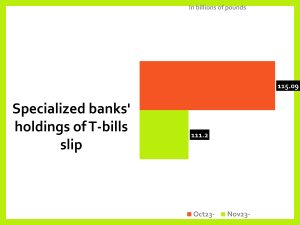
Development of the country’s legislative environment for investments has played a key role in luring more FDI inflows last year. There have been amendments to the investment law in a bid to attract investors. The state has also offered tax incentives, especially for industrial investment.
GAFI has extended the deadline granted to companies to benefit from investment incentives until 2029. Moreover, it has allowed new and existing expansions of investment projects to enjoy tax incentives on machinery and equipment.
GAFI has granted 26 golden licenses for a large number of projects across a wide range of sectors like industry, food, construction, and technology.
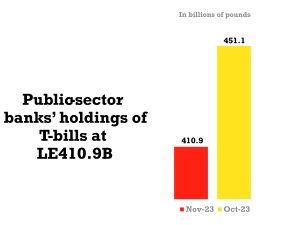
In a bid to ease the local business climate, Egypt’s investment law has adopted a one-stop shop system that slashes roughly 78 procedures down to only one. It also offers investors a package of advantages and incentives. For the first time, investors can hire foreign labour in Egypt.
Last month, the African Development Bank (AfDB) said Egypt’s economy would expand by 3.7 per cent in 2024.
AfDB said the momentum of Africa’s economic recovery has slowed, with average real gross domestic product (GDP) growth declining to an estimated 3.2 per cent in 2023, from 4.1 per cent in 2022. This decline is the result of multiple shocks and elevated inflationary pressures, particularly affecting Africa’s leading economies, including Egypt.
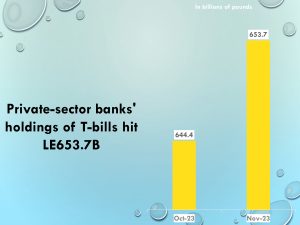
A well-designed business climate is expected to be advantageous for all, i.e. the government, the investors, the financial sector, banking and society as a whole.
Seeking administrative decentralization, Egypt’s investment law sets up investment one-stop shops, where official delegates offer investors an all-in-one service, including licensing, registration and property allocation procedures.
The law creates a one-stop shop system to slash roughly 78 procedures down to only one. The new investment law should target cutting costs, risks and deepening competition as firms invest to make profits.
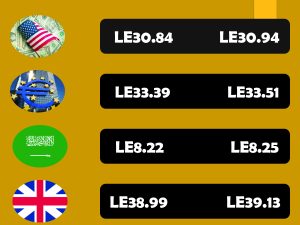
CBE’s assets rise 5.6% in January
Assets of the Central Bank of Egypt (CBE) increased by 5.6 per cent, month-on-month, to LE5.107 trillion in January, up from LE4.833 trillion a month earlier.
The CBE’s gold balances rose to LE257.01 billion in January, against LE260.1 billion in December, according to CBE data. The CBE’s cash balances stood at LE11.69 billion, while its balances with banks reached LE519.6 billion in January.
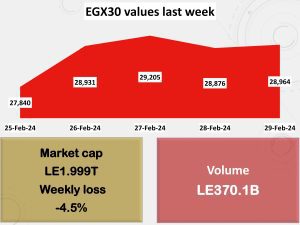
The CBE’s balances with the International Monetary Fund (IMF) rose to LE22.8 billion in January, up from LE12.552 billion a month earlier. The CBE’s stakes in international financial institutions increased to LE22.641 billion in January, against LE21.758 billion the previous month, according to CBE data.
The CBE’s stakes in subsidiaries and sister companies were unchanged at LE47.821 billion in January.




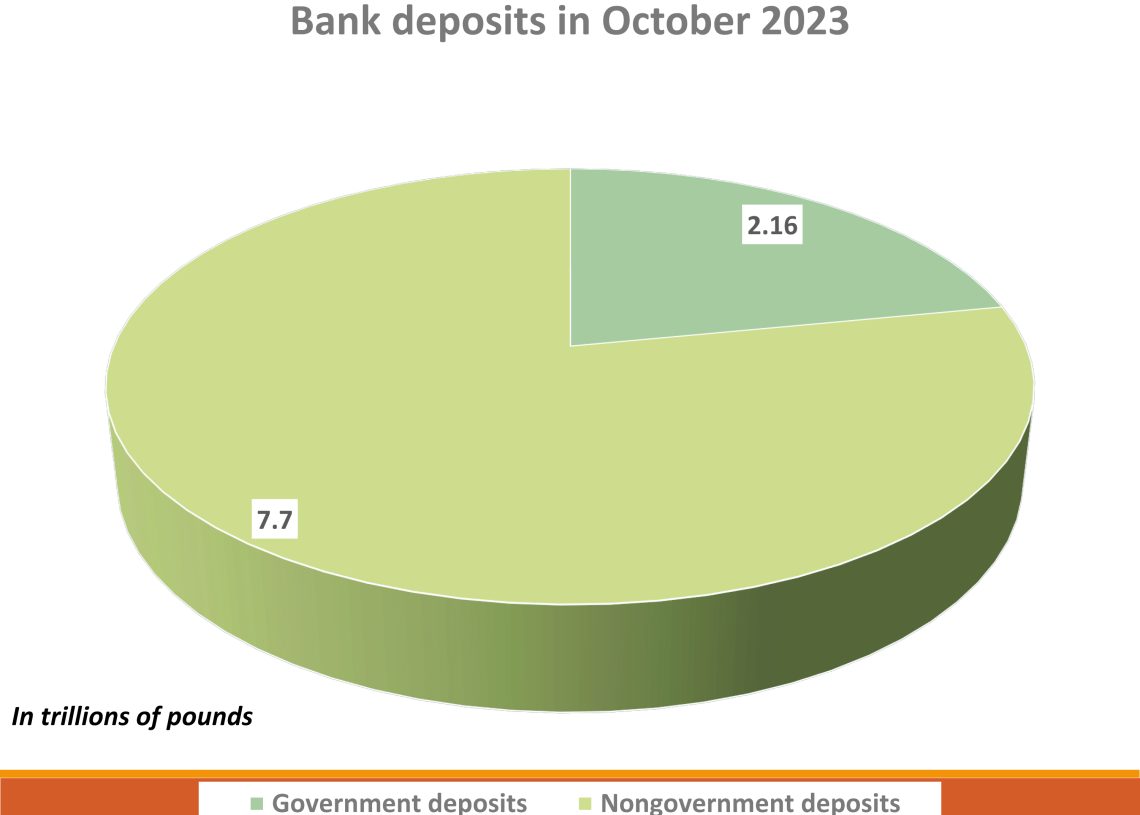

Discussion about this post